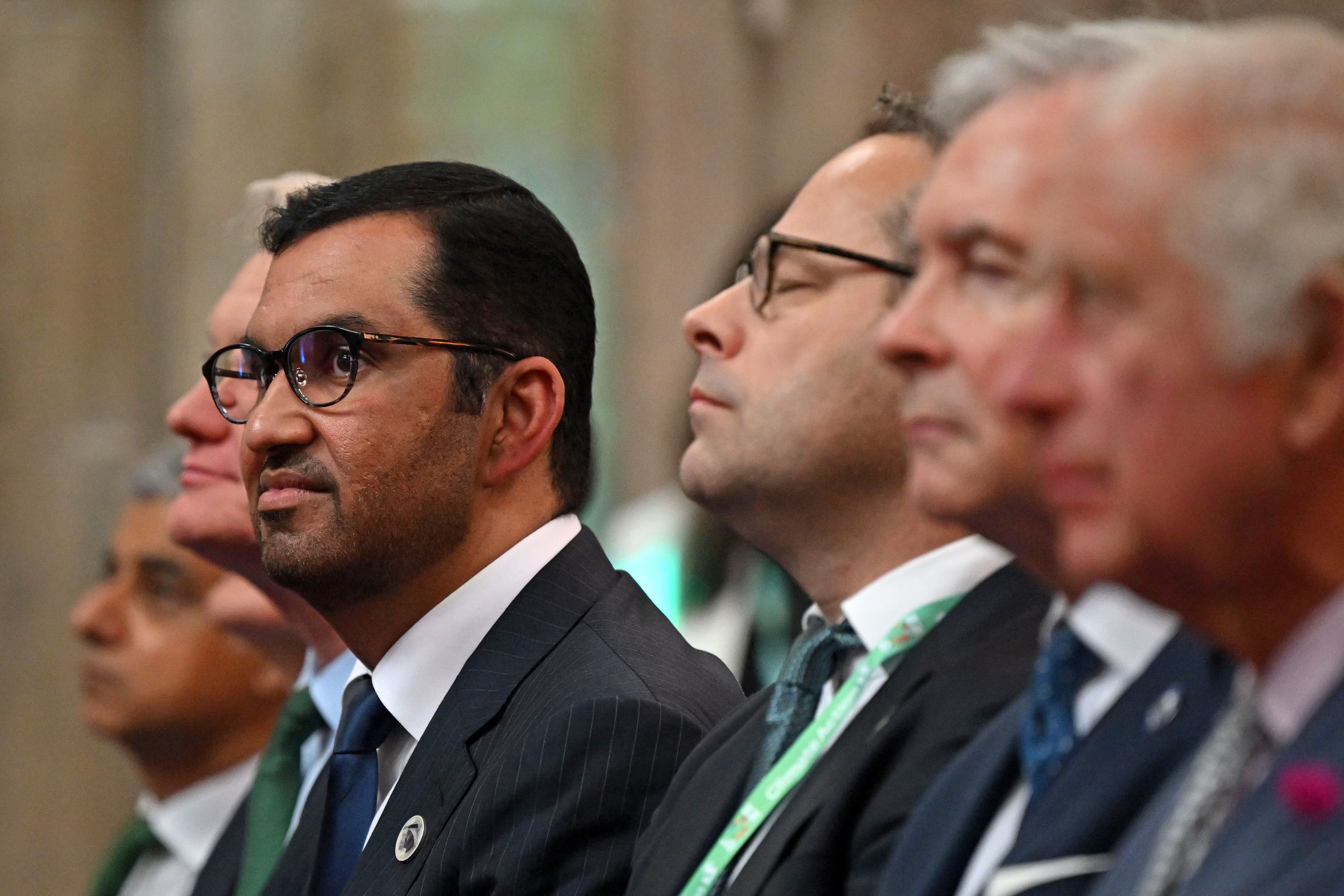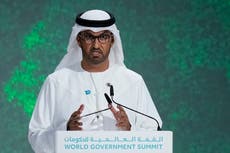Anti-Cop28 backlash is endangering Africa
While it is not ideal that climate talks will be overseen by an oil magnate, we owe a responsibility to more vulnerable nations to see that they go ahead, writes Ndileka Mandela. We cannot demand perfection at the expense of progress


The Cop28 summit in Abu Dhabi this December is not without its controversy. Here we have the UAE, one of the world’s leading oil producers, taking the reins of what may be the most consequential climate meeting of our time. It’s hard to ignore the irony – but we cannot lose sight of what’s at stake.
In my homeland of Africa, climate change is not an abstract concept – it’s an existential threat. Across the global South, nations are on the brink of climate calamity. We can’t afford the luxury of boycotting Cop28; not when it means turning our backs on crucial negotiations that could determine our survival.
The crescendo of calls to boycott Cop28 is undeniable. More than 130 members of Congress and the European Parliament are demanding the removal of Dr Sultan Al Jaber, the UAE oil magnate leading the climate talks. Climate activists and environmental organisations are championing a full civil society boycott. Belgium’s environment minister has already vowed to skip the summit.
But is this really the way forward?
It’s fair to question the UAE’s role at Cop28, but here’s the hard truth: demanding perfection at the expense of progress leaves us with neither.
Consider this: a major national oil producer is publicly pushing for a “phase down” of fossil fuels by 2050. This call to curb oil, gas, and coal is already on the agenda, months ahead of Cop28. The UAE’s proposal to triple global renewable energy capacity by 2030, and double it yet again by 2040, is nothing short of audacious. Will it single-handedly avert dangerous climate change? No, but it’s a leap beyond the EU’s renewable energy plans and far more ambitious than any previous UN climate summit.
I share the chorus for a complete “phase out” of fossil fuels. Even the UAE’s environment minister recognizes the need to “phase out oil and gas in a just way.” But let’s not dismiss the potential of the UAE’s proposals at Cop28. If an accord is reached to extinguish all “unabated” fossil fuels by 2050, it would be a death knell for Big Oil.
The ultimatum? Decarbonise or face extinction. Herein lies a historic chance to advance towards our ultimate goal of a world free of oil and gas.
And let’s not forget, the UAE is finally putting its money where its mouth is when it comes to climate financing for developing nations. Last year, in partnership with the US, the UAE launched the Partnership for Accelerating Clean Energy, rallying $100bn for 100 new gigawatts of clean energy across the globe by 2035. And there’s Masdar, the UAE’s state-owned renewable energy giant, founded by Cop28 president Sultan Al Jaber, which is fast becoming one of Africa’s most significant investors in renewable energy, hoping to bring clean electricity to 100 million people across the continent by 2035.
To those Western politicians who question an oil producer’s role at the helm of Cop28, I ask: What have you done to support Africa in the battle against climate change?
The dearth of financial support from richer nations to those most vulnerable to climate change is a brutal reminder of the racist inequalities that persist post-colonization. Cop28 is the first to address the structural red tape that stymies progress on climate finance, assembling a high-level group, led by renowned British climate economist Lord Nicholas Stern, to chart a roadmap for international finance reform.
Furthermore, Al Jaber has backed the revolutionary “Bridgetown Initiative”, which could unlock $1 trillion in climate financing, a full 10 times what’s been pledged to date. If adopted at Cop28, it could be a game-changer for developing nations struggling to combat global warming while juggling debt repayments amidst climate disasters.
The relentless backlash against Cop28 is a danger to climate action and a disservice to the global south. A boycott could disproportionately hurt developing countries, precisely those most in need of climate financing.
Africa, already feeling the sting of climate change, can ill afford to let the prospect of a climate financing breakthrough at Cop28 slip through its fingers. The UAE’s presidency is the first to prioritise a climate financing deal that puts money in the hands of developing nations, not just empty promises.
To jeopardise this is a gamble we cannot afford.
The legacy of my grandfather, Nelson Mandela, is a testament to the power of unity and discernment in the face of adversity. As the world confronts the looming climate crisis, let us not shy away from scrutiny and challenge. But let us also not hinder progress at the expense of the world’s most vulnerable.
Ndileka Mandela is a social activist, former ICU nurse and the head of a rural upliftment organisation the Thembekile Mandela Foundation in South Africa






Join our commenting forum
Join thought-provoking conversations, follow other Independent readers and see their replies
Comments